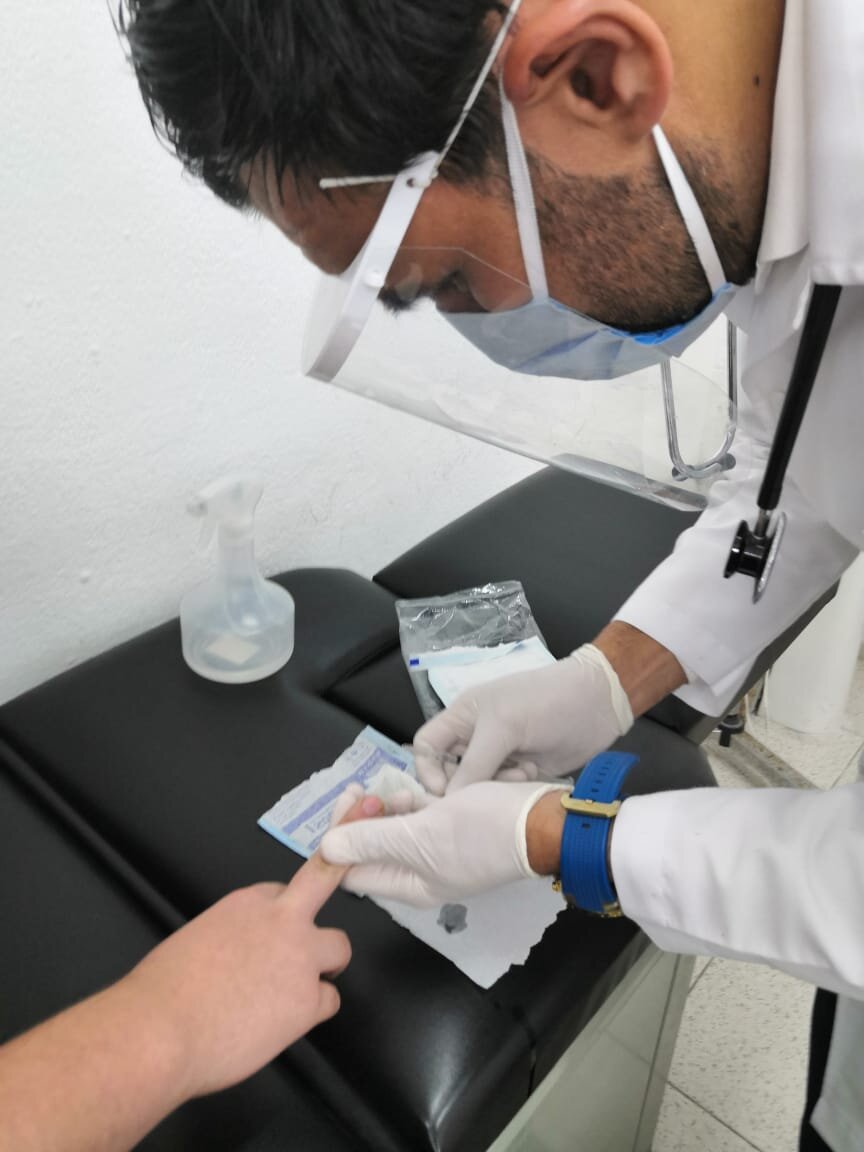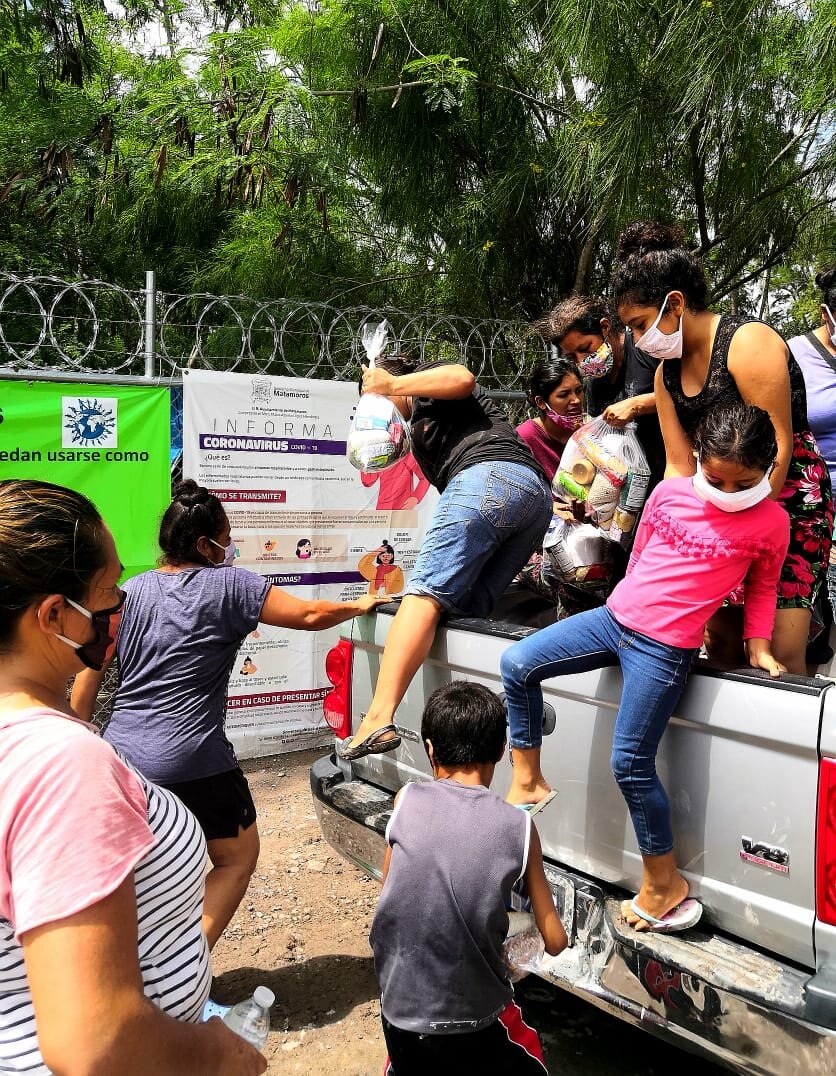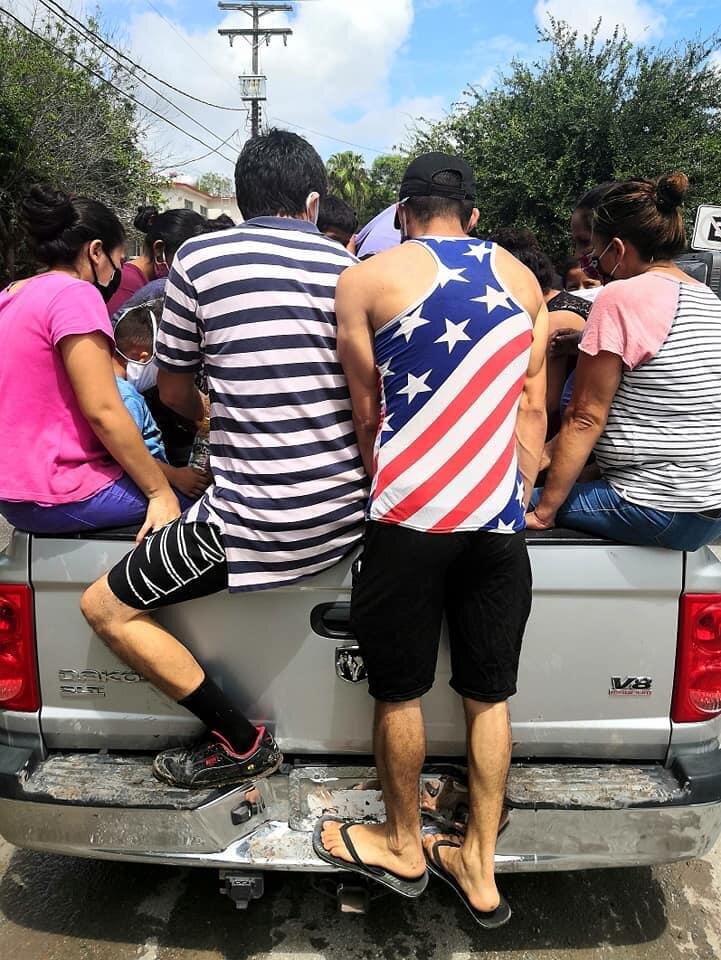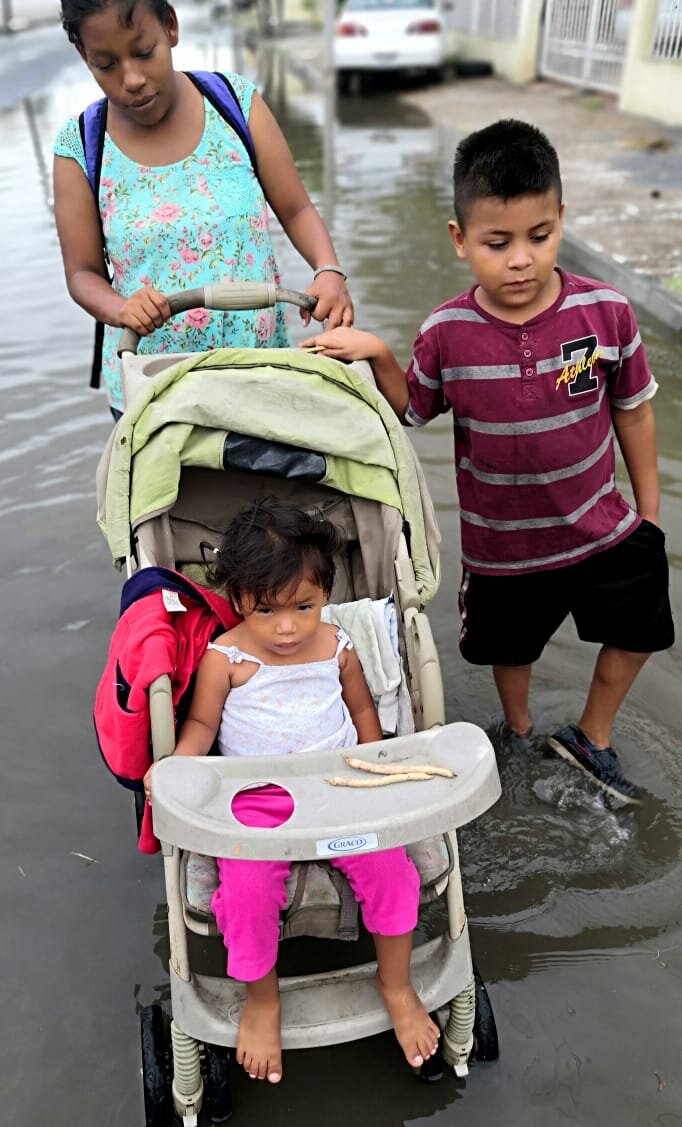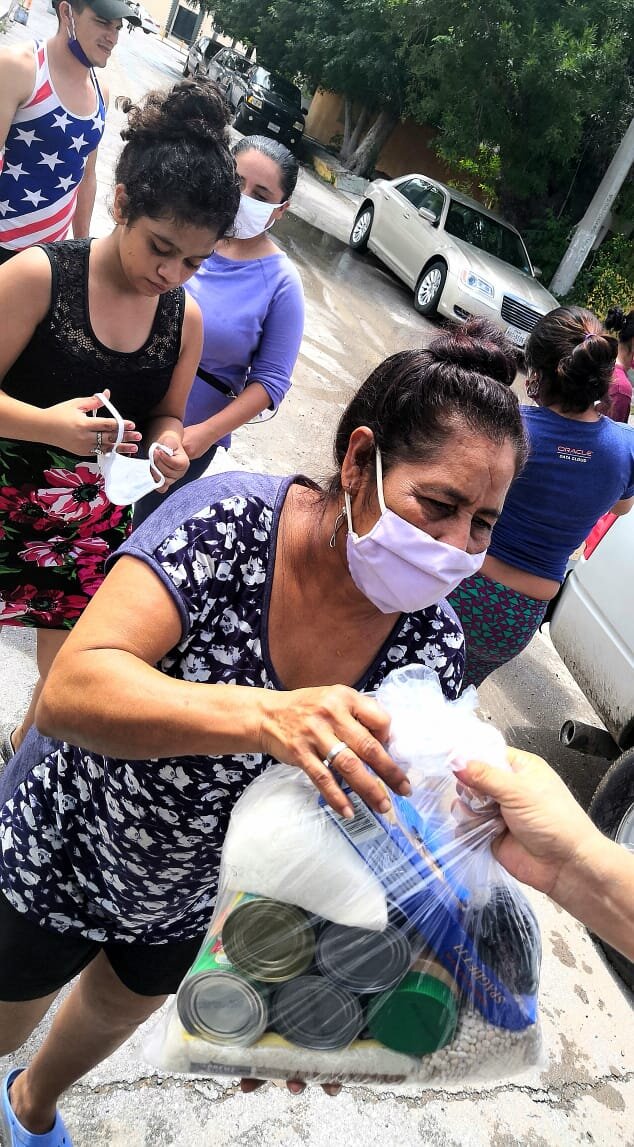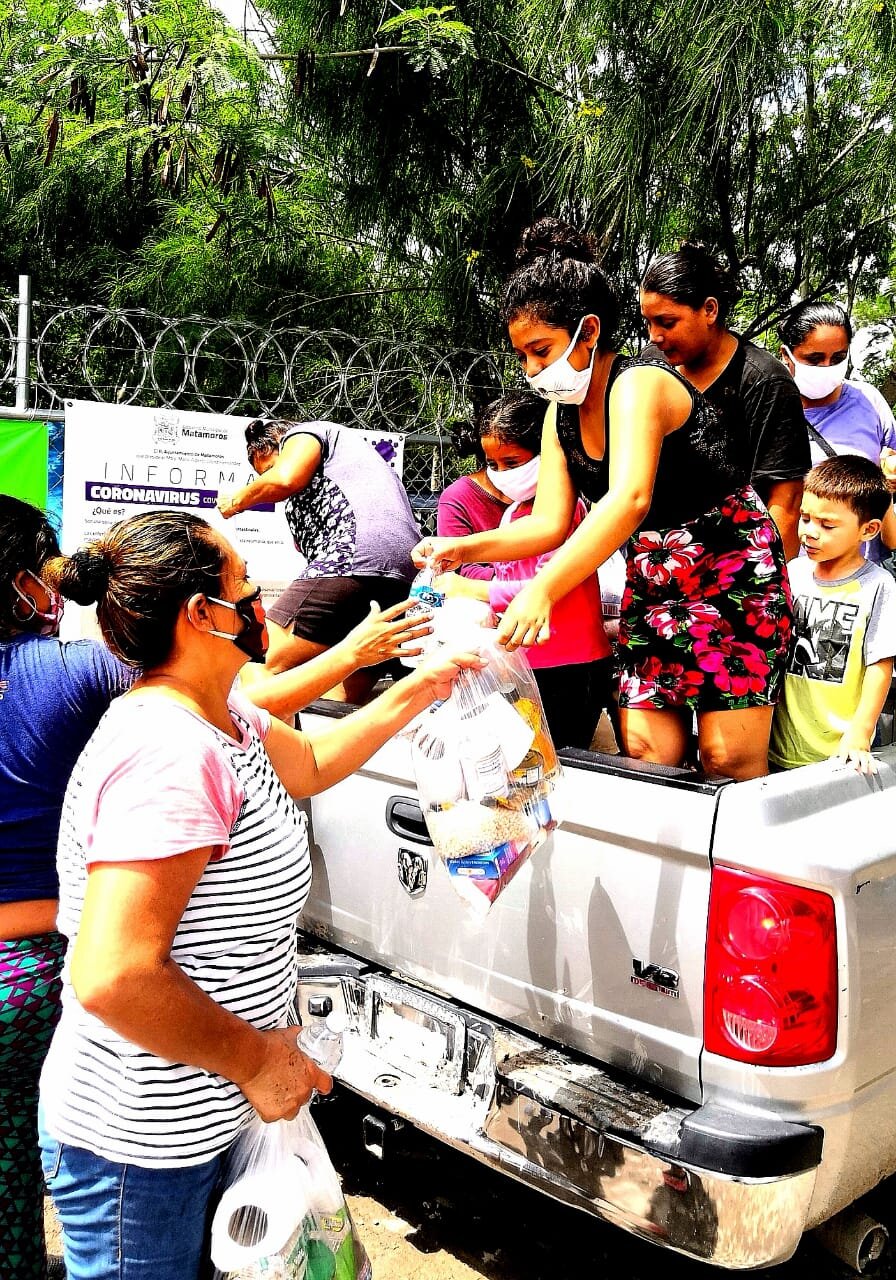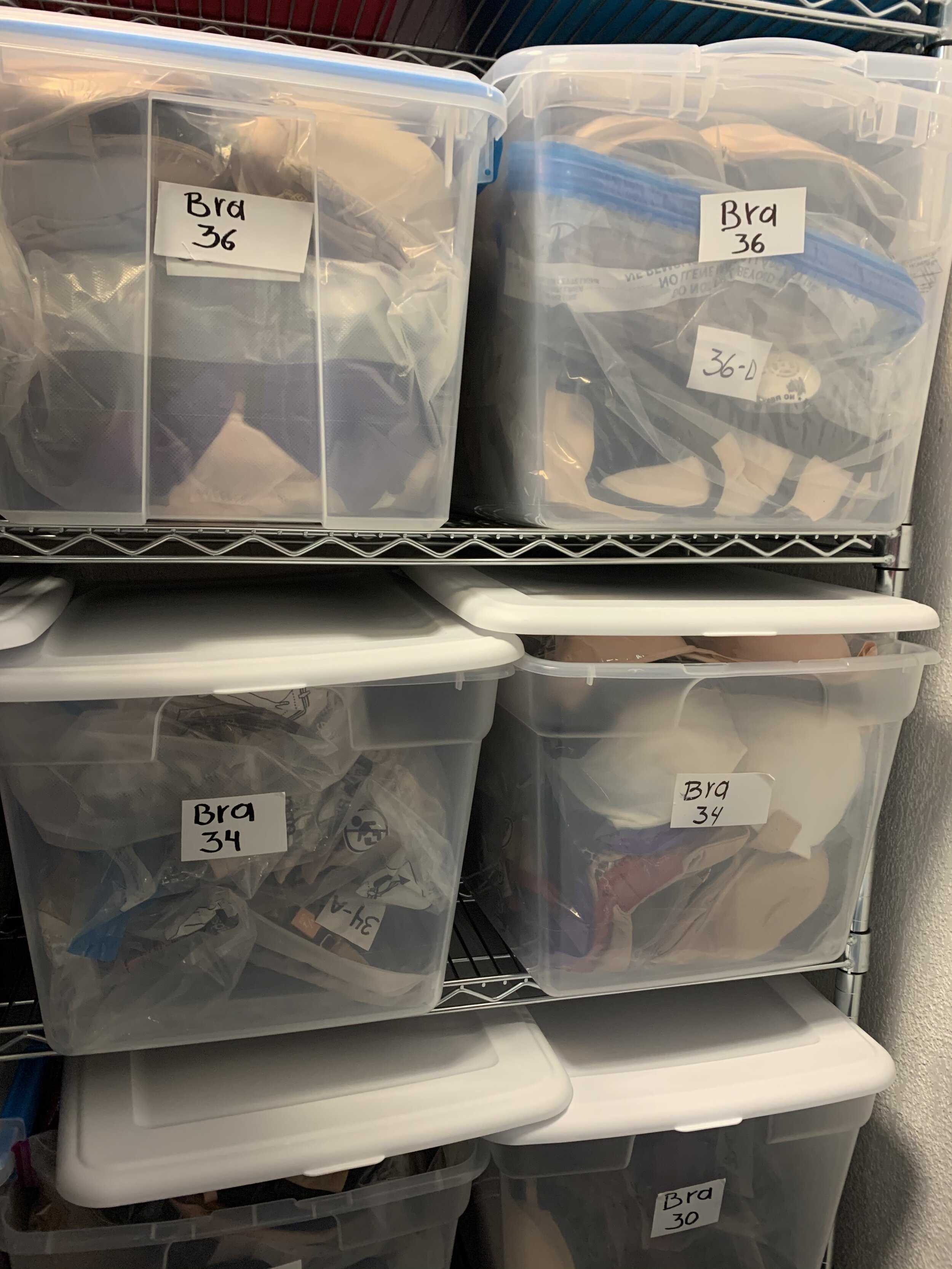Hurricane Hanna, COVID-19 compound misery across the Rio Grande Valley
By Elket Rodríguez
Hurricane Hanna left a trail of devastation as it tore through Texas’ Rio Grande Valley near the Gulf of Mexico July 25. Hanna dumped more than 15 inches of rain on the region, severely flooding rural areas and colonias.
Hanna's impetuous winds also wreaked havoc, overturning trailer homes and ripping roofs off others.
“The hurricane did a lot of damage to the colonias,” the unincorporated villages that dot the border, reported Jorge Zapata, associate coordinator of the Cooperative Baptist Fellowship of Texas. “Many families had their rooftops blown off their homes.”
Hanna also left waist-high water in thousands of homes, added Zapata, founder of Hearts4Kids, a nonprofit ministry that serves the poorest communities along the U.S.-Mexico border, and associate pastor of New Wine Church in La Feria, Texas.
Zapata provided leadership to a coordinated effort that continues to involve CBF Disaster Response, CBF Texas, Fellowship Southwest, Hearts4Kids and numerous churches.
And even after the winds died down, the situation across the Valley remained severe. "Families cannot get out of their houses. … Their cars are under water," Zapata said.
As he distributed water bottles in some of the poorest neighborhoods in the Valley, he witnessed disheartening scenes. "I saw 4-year-old children taking water out of their houses with buckets," he noted.
Nearer the Gulf of Mexico and across the border, Pastor Eleuterio González serves more than 1,600 refugees waiting for their U.S. immigration hearings in Matamoros, Mexico. They cannot cross the border because of the U.S. government’s Migrant Protection Protocols, also known as “remain in Mexico,” which require them to work through the asylum process south of the border.
Before the hurricane hit, González relocated 83 children and 69 mothers who were living with more than 4,000 other immigrants in a massive tent camp near downtown Matamoros. They moved into a warehouse owned by a member of Iglesia Valle de Beraca, the church where González is pastor.
The majority of the male immigrants rode out the storm inside their tents, "enduring the onslaught of the hurricane,” González said. "There are many tents that are damaged or broken. … Almost every migrant lost their clothes due to the winds.”
Although much of Matamoros is flooded, the Rio Grande, which forms the city’s northern border, did not spill over its banks into the immigrant camp.
"Thank God the river did not overflow and nobody died," González said. "But the soil is very wet, and I have to get people out of there."
Maladies delivered by Hanna are numerous. Many children have eczema, brought on by bites from mice. Worms infest the immigrant camp. And many adults suffer from fever, a major symptom of COVID-19. González planned to accompany a doctor into the camp to provide free medical examinations.
Across the border from Matamoros, pastors Carlos Navarro of Iglesia Bautista West Brownsville and Rogelio Pérez of Iglesia Bautista Capernaúm in Olmito have helped their fellow pastors in Matamoros and the colonias in the Valley.
Before the hurricane made landfall, Hearts4Kids delivered 12 pallets of bottled water and 1,700 gallons of milk to Pérez, so he could help residents of Olmito stock up in anticipation of the hurricane.
After the storm, Navarro provided hundreds of pounds of clothing to storm victims. "About 800 shirts and 300 pants, among other types of clothing, will be donated to migrants in Matamoros,” he said. Before the pandemic, Navarro and Iglesia Bautista West Brownsville operated an immigrant respite center, which is closed until the U.S. government begins processing asylum petitions again.
Brownsville and Olmito didn’t experience much flooding. In fact, Navarro held two services on Sunday morning, and Perez’s church members didn’t experience any property damage.
CBF Texas donated 25 tarps to help families who lost their roofs during the hurricane. In addition, the Hope Springs Water organization donated 19 pallets of bottled water to Hearts4 Kids to be distributed in the region.
CBF Disaster Response is donating gift cards for families to buy immediate recovery items and will equip a tool trailer to help with home repair. Fellowship Southwest and CBF Disaster Response are purchasing supplies to protect storm victims, as well as to help clean up the damage and ensure victims can stay dry. They also will coordinate long-term recovery in the region.
“Due to COVID-19, no volunteers will be recruited to assist with Hurricane Hanna recovery efforts,” CBF Disaster Response Domestic Coordinator Rick Burnette said. “However, prayers for the affected households and congregations are requested along with financial support.”
The past few months have been dire for the border communities and their vulnerable residents. Hanna compounded the misery visited by poverty, immigration and the pandemic.
Still, the leaders of the coordinated response to these challenges believe now is the best time for Christians to embody the presence of Christ for people on the border who simultaneously are enduring a hurricane, a pandemic and heartache.
To support CBF’s Domestic Disaster Relief Fund, which Hearts4Kids also has used to help communities along the border, click here.
Eleuterio González desperately needs a van to transport refugees around Matamoros. If you have a 15-passenger van you would like to donate to this ministry, or if you would like to contribute to a fund to purchase a van, contact Marv Knox at mknox@cbf.net.
Elket Rodríguez us the immigrant and refugee advocacy and missions specialist for the Cooperative Baptist Fellowship and Fellowship Southwest.



